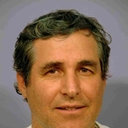Evaluation of mood profiles during malaria chemoprophylaxis: a randomized, double-blind, four-arm study.
الكلمات الدالة
نبذة مختصرة
BACKGROUND
To objectively compare the mood profiles of users of malaria chemoprophylaxis regimens (atovaquone-proguanil, chloroquine-proguanil, doxycycline, or mefloquine) in a group of nonimmune tourists to sub-Saharan Africa.
METHODS
In a randomized, double-blind, four-arm study with placebo run-in phase conducted at travel clinics in Switzerland, Germany, and Israel, we compared moods and feelings in chemoprophylaxis users (n= 547) by administering the standardized "Profile of Mood States" (POMS) questionnaire. This is designed to provide data on six categories of feelings: tension, depression, anger, vigor, fatigue, and confusion. The questionnaire was administered at four time points: recruitment (T1), 13 to 11 days before departure (T2), 6 to 4 days before departure (T3), and 7 to 14 days after return from Africa (T4).
RESULTS
There were no significant differences with respect to overall mood impact between the medication arms. All scores were in the normal range, and no means were more than 1 SD from the norm. The POMS data were reanalyzed with respect to sex, age, medication group, and control time points (T1-T4). There were significant interaction effects between sex and medication group--women in the mefloquine group showed more "fatigue" (p= .011) and "confusion" (p= .011) than men. Significant effects of age group (below median age 34 y vs median age and above) were noted on the "tension" and "fatigue" scales in that less "tension" (p= .045) and less "fatigue" (p= .000) were noted in those aged 34 years and older. Younger participants, aged <34 years, reported more "confusion" (p= .013) at T2 than at T1 and T4.
CONCLUSIONS
Although the overall mood profiles were similar for the users of any of the standard malaria chemoprophylaxis regimens, we found that women using mefloquine showed more fatigue and confusion than men and that younger persons aged less than 34 years, regardless of chemoprophylaxis used, reported more tension and fatigue than their older counterparts.


